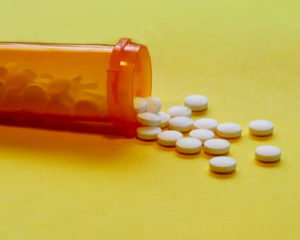A lot can happen to your body when you don’t get enough sleep. Not getting the recommended seven or eight hours of rest can contribute to a weakened immune system, impair memory and cognition, and contribute to weight gain. It also increases your risk to get certain cancers, diabetes, and even car accidents. An inability to fall asleep or short duration of sleep increases the chances of developing coronary heart disease or having a stroke.
It is estimated that 50-70 million adults in the United States annually struggle with sleep disorders. The odds of being sleep deprived have also increased significantly during the past 30 years due to technology. This has led to medications that induce sleep to be highly sought out, but with that, has caused an influx of addiction problems.
In the early 1900s, barbiturates were created to address this issue. As time moved forward, barbiturate use became widespread, and physicians saw how dangerous they actually were. Addiction was a huge problem when it came to these drugs, and scientists continued on their journey to find new solutions. This prompted the creation of benzodiazepine drugs to help with sleep disorders. Over time this was also found to be problematic, and then Z-drugs like Zimovane came into existence.
Z-drugs were created as a solution to the more powerful benzos as a means to treat only sleep disorders. Benzos and barbiturates treat a wide range of disorders while Zimovane and other hypnotic drugs are designed specifically for sleep. While they provide relief and boast fewer side effects, there is still a risk of becoming addicted.
What Is Zimovane?

Zimovane, generically known as zopiclone, is a prescription drug used in the treatment of insomnia. It is a Schedule IV drug meaning it is only legal when a doctor authorizes use with a prescription. It belongs in an umbrella category of drugs known as central nervous system (CNS) depressants along with other hypnotic drugs and alcohol.
Depressants work by slowing down the nervous system and increase the efficiency of a neurotransmitter called gamma-Aminobutyric acid (GABA). The naturally occurring chemical will bind to receptors in the brain that are responsible for controlling excitability in the nervous system causing feelings of relaxation, a reduction in anxiety, and promoting sleep. Z-drugs like Zimovane selectively bind to the hypnotic, sleep-inducing sites on specific GABA receptors. As mentioned earlier, these are the latest medications to be introduced to the public for sleep.
These drugs work similarly to benzos, but they differ in chemical structures. They were created with the thought they’d have a lower addiction potential, but there have been studies released disputing those reports. Zimovane can be abused for its intoxicating effects, which are similar to the euphoria that alcohol produces. In some cases, the drug can create dependence leading to addiction through continued use even as prescribed.
Signs of Zimovane Addiction
Zimovane can show outward signs of addiction that are similar to other depressants. Familiarizing yourself with these signs will allow you to address the issue early and potentially save either yourself or someone else from falling too deep into a substance use disorder.
The first sign of addiction is a growing tolerance, which will feel like your initial dose is growing weaker each time you use Zimovane. The dose becomes less effective than the first time you consumed it because your body is adjusting to the effects. As it binds to GABA receptors, the brain produces chemicals to balance its chemistry. To achieve the same effect, you would require a higher dose.
Dependence is what follows tolerance, and according to the National Institute on Drug Abuse (NIDA), a dependence is when the body adapts to the drug, requiring more of it to achieve an effect (tolerance) and eliciting drug-specific physical or mental symptoms if drug use is abruptly ceased (withdrawal).
Zimovane Withdrawal Symptoms
Withdrawal symptoms are the clearest indicator that you’ve become dependent on a drug. If you feel any of the following symptoms when you skip a dose or stop using the drug, it can indicate a chemical dependence. These are:
- Confusion
- Insomnia
- Irritability
- Anxiety
- Psychosis
- Hallucinations
- Nausea
- Muscle or joint pain
- Lightheadedness
- Delirium
- Tremors
- Catalonia
- Seizures
Addiction can follow drug dependence. Addiction is marked by the continued use of a drug despite the consequences. If Zimovane use led to the loss of your job or an arrest, but you continued to use, this can indicate you’ve become addicted to the drug.
Zimovane Addiction Treatment
Addiction is a chronic disease that holds no cure, but it is very treatable through evidence-based therapies and strong commitments to the program. Addiction treatment follows a set level of cares that begin in the most intensive portion of care. This is considered the continuum of care, and the first stage is a medical detoxification. This is especially important when it comes to depressants like Zimovane.
Detox is the highest level of care and will allow the client to have access to medical staff 24 hours a day for up to seven days. For drugs like Zimovane, it is important to have a medical staff on hand to ensure the process is done safely, mitigating any risks involved. The team will help you wean off the drug safely and monitor your symptoms throughout your stay. Once they have deemed you stable and ready for the next level of care, you will be moved into the next stage of treatment.
Addiction treatment should always follow a detox to ensure long-term sobriety. This will offer a customized treatment plan that is based solely on your needs. An effective treatment will involve evidence-based addiction therapies that will address the root of your addiction. These will help you better understand why you began using in the first place and allow you to learn coping mechanisms you can use to manage when triggers that may arise in your daily life after treatment.
Dangers of Zimovane

Zimovane is safer than drugs like benzodiazepines or barbiturates, but that doesn’t mean there is no risk with use. There are certain side effects that drugs like Zimovane present. These drugs can cause impairment the following day, which prompted the U.S. Food and Drug Administration (FDA) to lower the recommended dose. Zimovane can cause drowsiness, dizziness, and slowed reaction time that can create havoc if someone decides to drive.
Also, the use of these sleep medicines have been correlated with sleep driving / sleep walking and commuter traffic accidents on the road.
Mixing one class of sedative can increase the risk of overdose and over-sedation when taken with other sedatives, including alcohol, benzodiazepines, and barbiturates.
Withdrawal symptoms from Zimovane can be dangerous because of the area of the brain it affects. These drugs suppress excitatory brain functions that build up as a tolerance is developed, and when you stop suddenly, it can cause the nervous system to become overactive. This, in turn, can lead to seizures or delirium tremens. These are two conditions that can be fatal if not treated properly.
Zimovane Abuse Statistics
- Zimovane has been found to increase the risk of an auto accident by 50%.
- About 4% of U.S. adults age 20 and older reported taking prescription sleep aids in the past 30 days, from 2005-2010.
- Hypnotics increase your likelihood of dying at night by 15%.
American Society of Addiction Medicine. (n.d.). Retrieved from: https://www.asam.org/resources/the-asam-criteria/about
The State of Sleep Health in America. (n.d.). Retrieved from: https://www.sleephealth.org/sleep-health/the-state-of-sleephealth-in-america/


